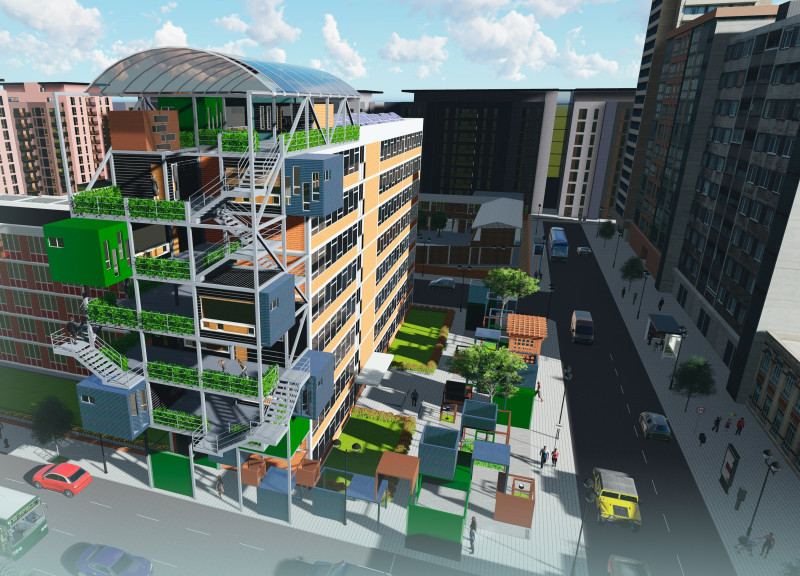5 key facts about this project
The design focuses on addressing the urgent housing needs in London, a city undergoing rapid economic and social changes due to industrialization and urbanization. The aim is to create affordable housing solutions through a modular approach, which optimizes space and resources. This makes it possible to design living areas that can adapt to the diverse requirements of the city’s population.
Modular Housing Concept
Core to the design is the idea of flexible, sustainable housing that fits within the existing urban landscape. Each housing unit consists of two parts: a fixed component and an expandable section. This arrangement allows residents to modify their living space as their needs change, providing a practical solution to urban living.
Design and Functional Components
The project's layout offers four different types of housing, catering to a range of occupants. Each unit features a bathroom with essential fixtures and a kitchen designed to include both storage and appliances. Multi-functional furniture plays an important role in maximizing usable space, allowing for comfort in smaller areas.
Sustainability and Circulation
The construction includes sandwich-type panels that provide insulation for walls and floors. This improves energy efficiency while maintaining internal comfort levels. The circulation within the living spaces integrates horizontal and vertical steel systems, making movement easy throughout the building. This design enhances neighborhood interaction and fosters a sense of community, complemented by strategically placed green spaces that encourage social engagement.
Innovative Features
Sustainability measures, such as rainwater catchment systems and solar panels, are incorporated thoughtfully into the design. These features aim to reduce the ecological impact of the development while encouraging residents to engage in environmentally friendly practices. The operable windows also contribute positively by allowing fresh air and natural light into the compact units, enhancing the living experience.


























